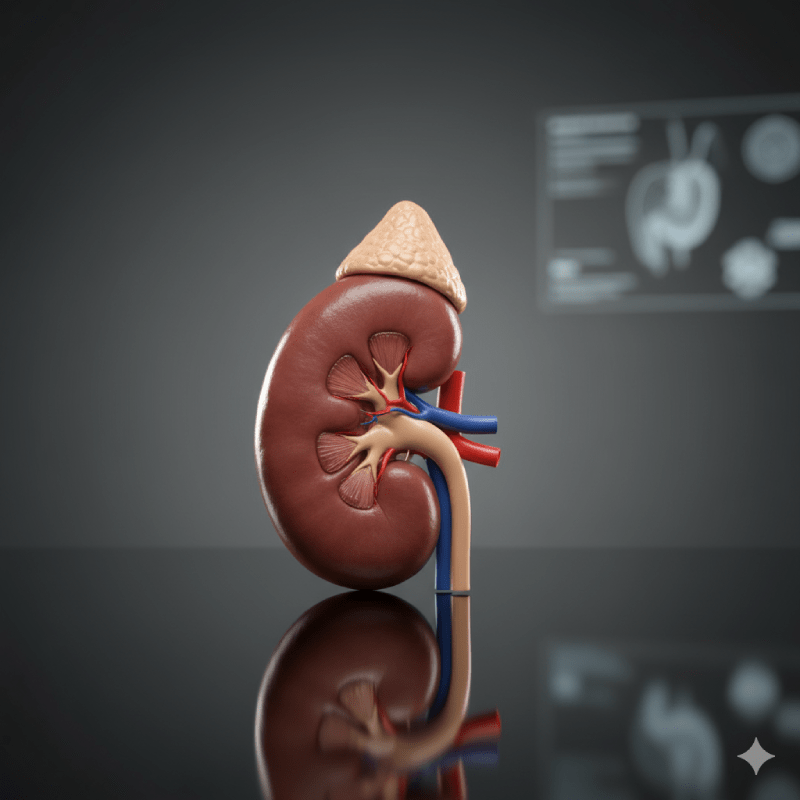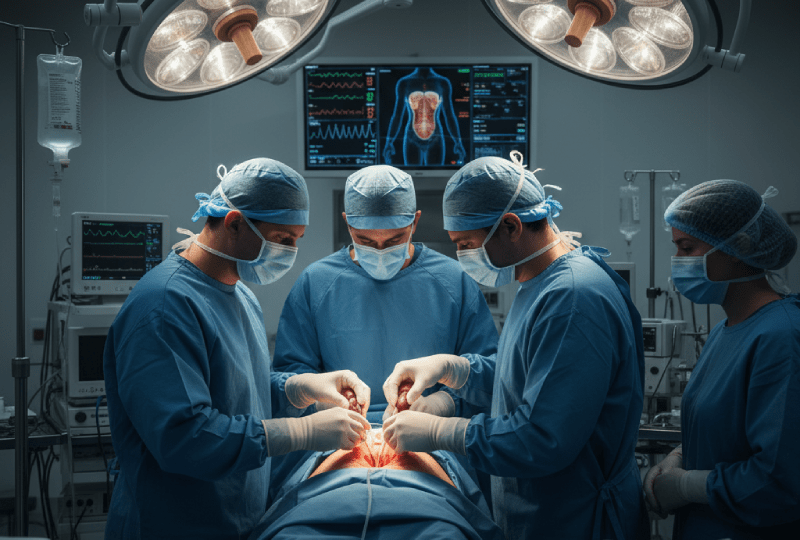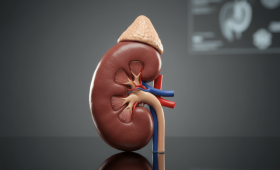What Are the Leading Hospitals for Cross and ABO Incompatible Kidney Transplants in Turkey?
In Turkey, there are many hospitals specialised in cross and ABO incompatible kidney transplants that are internationally recognised. Especially in major cities like Istanbul, Ankara, and Izmir, private and university hospitals with high success rates and equipped with modern technology stand out.
These centres are known not only for their surgical success but also for their comprehensive patient care services, experienced surgical teams, and international patient service units. When making a choice, it is important to consider the hospital’s experience in this field, the number of cases, and patient feedback.
What Should Be Considered When Choosing a Hospital?
Choosing the right hospital is one of the most critical steps for a successful transplant process. The key factors to consider when choosing a hospital are: the experience of the surgical team and nephrology specialists, whether the hospital has international accreditations (such as JCI), the total number of cases and success rates of the transplant program, the technological infrastructure used (such as laparoscopic surgery and tissue typing laboratories), and the quality of the patient services offered. These details ensure a smooth process both medically and logistically.
What Do Hospital’s International Accreditations Mean?
Having international accreditations for hospitals is an independent proof that they meet certain quality and safety standards. For example, Joint Commission International (JCI) accreditation shows that a hospital meets international standards in areas such as patient safety, quality management, and clinical performance. These accreditations certify the hospital’s reliability and service quality for patients coming from abroad. When researching hospitals, it is important to choose centres with such accreditations.
How Do Success Rates Vary Between Hospitals?
Success rates for cross and ABO incompatible kidney transplants can vary significantly depending on the hospital’s experience and case volume. High-volume transplant centres generally have higher success rates because they have more experience in managing complex cases. When researching hospitals, asking not only about general transplant success rates but specifically about the success rates for ABO incompatible and cross transplants will help you make the right decision.
What is the Technological Infrastructure of Hospitals Like?
Leading transplant hospitals in Turkey are equipped with the latest medical technologies. This technology includes laparoscopic surgery systems, high-precision tissue typing laboratories, and advanced imaging methods. This makes it possible for the donor to have a less invasive surgery, while the compatibility between the recipient and the donor is determined at the highest level. Modern technology speeds up the post-operative recovery process and minimises the risk of potential complications.
How Does the Initial Consultation Process for Transplant Work?
The initial consultation process usually begins with the review of the medical reports and test results of the patient and the donor. For patients coming from abroad, this process is generally conducted via online platforms or by e-mail. The hospital’s transplant coordinators evaluate your documents, create a preliminary treatment plan, and determine if there is a potential match. This preliminary assessment allows patients to have a clear idea about the process before they come to Turkey.
Do Hospitals Offer Pre-transplant Evaluation Packages?
Yes, most transplant centres offer comprehensive pre-transplant evaluation packages for the recipient and the donor. These packages include all tests and examinations performed to determine if both parties are medically suitable for the surgery. The packages cover a series of tests such as blood tests, tissue typing, radiological imaging (ultrasound, MRI, etc.), and cardiological evaluations. These packages make the process more transparent and manageable.
How Long Does the Pre-transplant Evaluation Take?
The pre-transplant evaluation process varies depending on the health status of the patient and the donor and the number of tests required. Generally, all evaluations and the receipt of results are completed within a few days before the patients are admitted to the hospital. For patients coming from abroad, hospitals create a plan where all tests can be done quickly under one roof. This aims to minimise the duration of the patients’ stay in Turkey.
What is the Role of Hospital Transplant Coordinators?
Transplant coordinators are the most important guides for patients and donors on their transplant journey. These professionals coordinate all medical and legal processes, arrange patients’ appointments, help with the collection of necessary documents, and ensure that both parties are fully informed about the process. They are your primary point of contact for all your questions before and after the transplant. Their support significantly reduces the complexity of the process.
Do Hospitals Assist with Legal and Ethics Committee Processes?
Yes, transplant hospitals in Turkey provide comprehensive support to patients in the legal and ethics committee processes required for the transplant. The hospitals’ international patient units assist in the preparation of necessary documents and the management of the application process to the ethics committee. These units ensure that mandatory procedures such as sworn translation and notary certification are completed smoothly. In this way, foreign patients are not left alone with the legal processes.
What Do Hospitals’ ABO Incompatible Transplant Programs Include?
ABO incompatible transplant is a special type of transplant applied to patients with blood group incompatibility. These hospital programs include desensitisation treatments aimed at reducing the antibody levels in the recipient’s blood before the transplant. This treatment can include plasmapheresis or immunoglobulin (IVIG) applications. These special programs offer a promising solution for patients who have no chance of a transplant due to blood group incompatibility.
How Is the Desensitisation Process Managed in Hospitals?
The desensitisation process can take several weeks or months, depending on the antibody levels in the patient’s blood. Hospitals conduct frequent tests to monitor this process closely. Plasmapheresis is used to clean antibodies from the patient’s blood, while IVIG therapy prevents the formation of new antibodies. These procedures are closely monitored within the hospital, and the transplant surgery is performed only after the antibody levels have dropped to a safe level.
What Are the Additional Risks of ABO Incompatible Transplants?
ABO incompatible transplants can carry additional risks compared to traditional compatible transplants. The biggest risk is the rejection of the new kidney by the body. However, these risks have been significantly reduced thanks to modern desensitisation treatments. Other risks may include infections and side effects from medications. Hospitals implement a comprehensive follow-up plan to manage these risks and inform patients about the process in detail.

What Special Equipment Do Hospitals Use for These Transplants?
ABO incompatible and cross transplant procedures require special medical equipment and advanced laboratory technology. Hospitals use plasmapheresis machines, high-resolution tissue typing systems, and the latest surgical instruments. This technological equipment ensures that the procedure is performed safely and effectively. In addition, the coordinated work of an experienced surgical and nephrology team is vital for the success of these transplants.
What Are the Success Rates of Hospitals in These Transplants?
Experienced organ transplant centres in Turkey also have high success rates in ABO incompatible and cross transplants. These rates are almost at the same level as compatible transplants and are generally over 90%. High success is achieved through meticulous pre-transplant evaluation, modern desensitisation techniques, and careful post-operative follow-up processes. This makes Turkey a reliable transplant destination for foreign patients.
What Do Hospital Transplant Packages Cover?
The transplant packages offered by hospitals are usually very comprehensive and are offered at a single price. These packages include all pre- and post-transplant medical examinations for both the recipient and the donor, surgical operation costs, hospital stay, post-operative medications, and transplant coordination services. Some hospitals also offer additional conveniences such as airport transfers and interpreter services to increase patient comfort.
Are There Any Hidden Costs in Hospital Fees?
In well-researched and reliable hospitals, transplant package prices are usually transparent and do not include hidden costs. However, in case of unexpected complications during or after the surgery or if the patient needs additional treatment, extra costs may arise. Hospitals inform patients about such situations in advance. It is important to ask about all cost items in detail before signing a contract.
Do Hospitals Have Agreements with International Health Insurers?
Many international hospitals in Turkey have agreements with various international health insurance companies. However, whether your insurance covers transplant costs depends on your policy. When you contact the hospitals, you can get support from the hospital’s international patient department to find out if your insurance company covers the transplant expenses and what the necessary procedures are.
What Are the Payment Options for Patients from Abroad?
Payments for patients coming from abroad are generally made by bank transfer or credit card. Some hospitals may request a certain advance payment before the surgery, while others may ask for the full fee to be paid at once. You can contact the hospital to find out the most suitable payment method and conditions for you. Planning payment processes in advance prevents possible financial problems.
What Are the Costs of Post-Transplant Medications?
Immunosuppressive medications used after the transplant are vital for the patient’s new kidney to continue functioning. The cost of these medications is usually not included in the hospital’s transplant package. Although the costs in Turkey are more affordable than in the UK, it is important to consider the long-term costs as you have to use these medications regularly. The hospital’s transplant coordinators will give you detailed information about these medications.
What Is the Recipient’s Hospital Stay Process Like?
Recipients usually stay in the hospital for 7 to 10 days after the surgery. During this time, the functions of the transplanted kidney are closely monitored, and immunosuppressive drugs are adjusted. Patients are informed by nurses and doctors about post-transplant care, nutrition, and medication use. Hospitals offer all facilities for the comfort and safety of the patients.
What Is the Donor’s Hospital Stay Process Like?
Thanks to laparoscopic surgery, the donor’s hospital stay is short, usually 3 to 5 days. Donors experience minimal pain after the surgery and start recovering quickly. Hospital staff closely monitor the donor’s recovery process and intervene immediately in case of any complications. Donors can quickly return to their normal lives after being discharged.
Do Hospitals Provide Accommodation Support for Patients’ Families?
Many international patient centres in Turkey provide accommodation support for patients’ families. There are contracted hotels or guesthouses near the hospitals. These arrangements allow patients’ families to stay close and be comfortable throughout the treatment process. It is important to contact the hospital about the cost and details of this service.
How Is Language Support Provided in Hospitals?
Hospitals provide language support through English and other language-speaking staff, transplant coordinators, and interpreters. This way, the patient and donor do not face any communication problems during the process. You can benefit from these services for appointments, medical explanations, and all your questions. This support helps patients feel more comfortable and secure.
How Does the Post-transplant Follow-up Program Work?
The post-transplant follow-up program is vital for the patient’s long-term health. Hospitals conduct frequent check-ups for the recipient during their stay in Turkey. Afterwards, patients are informed about the need to collaborate with a nephrology specialist in their own country. The hospital’s international patient unit can help the patient communicate with doctors in their home country.
Do Hospitals Offer Airport Transfer Services?
Yes, many hospitals in Turkey offer airport transfer services for the comfort of international patients. This service ensures that patients and their companions can get to the hospital or their accommodation comfortably from the airport. It is important to ask in advance whether this service is included in the package price.
How Can I Get Support for Visa and Accommodation?
The hospital provides comprehensive support to patients regarding visa and accommodation arrangements. International patient units provide information about visa application processes and help with the preparation of necessary documents. You can benefit from the hotels or apartments with which the hospital has an agreement for accommodation. These services facilitate travel planning.
What Preparations Are Recommended Before the Transplant?
Hospitals provide patients with a detailed list of pre-transplant preparations. These lists usually include steps such as collecting medical documents, performing necessary tests, arranging medication use, and preparing travel documents. These preparations are critically important for the transplant process to proceed smoothly.

What Is the Duration of Stay Near the Hospital After Discharge?
After being discharged, it is recommended that patients and donors stay near the hospital for a while for close post-operative follow-up. This period usually ranges from 2 to 4 weeks. During this process, doctors closely monitor the patients’ recovery process and adjust medication dosages. This is vital for the early diagnosis and treatment of potential complications.
Can I Get Emergency Support After Returning to the UK?
Hospitals stay in contact with patients even after they return to the UK and offer support for emergencies. The hospitals’ transplant coordinators or doctors answer patient questions via e-mail or phone and, when necessary, provide guidance on contacting a local healthcare provider. This makes patients feel safe.
What Are the Hygiene and Sterilisation Standards of Hospitals Like?
International hospitals in Turkey have high hygiene and sterilisation standards. Operating theatres, intensive care units, and patient rooms are managed in accordance with international protocols to minimise the risk of infection. The accreditations of the hospitals are an indicator that these standards are regularly audited.
How Do Hospitals Ensure Patient Safety?
Patient safety is the top priority for hospitals. Hospitals ensure patient safety through comprehensive risk management programs, regular staff training, and technological safety measures. Patient identification is verified at every step, and medication management processes are strictly controlled.
Why Is the Experience of the Surgical Team Important?
Due to the complexity of transplant surgery, the experience of the surgical team is of vital importance. Highly experienced surgeons can better manage potential complications and ensure that the surgery is successful. The case volume of the hospitals’ transplant program is an important indicator of the surgical team’s experience.
How Do Hospitals Ensure Patient Data Privacy?
Hospitals protect the privacy of patient data in accordance with international laws and regulations (e.g., GDPR). Patient records are stored in secure electronic systems and can only be accessed by authorised personnel. Patients can request access to their own medical records.
What Plans Do Hospitals Have for Emergencies?
Hospitals have detailed plans for emergencies. They have a 24/7 emergency hotline or a nephrology team available for complications that may arise after the transplant. These teams can respond quickly to patients’ urgent medical needs and perform necessary interventions.


